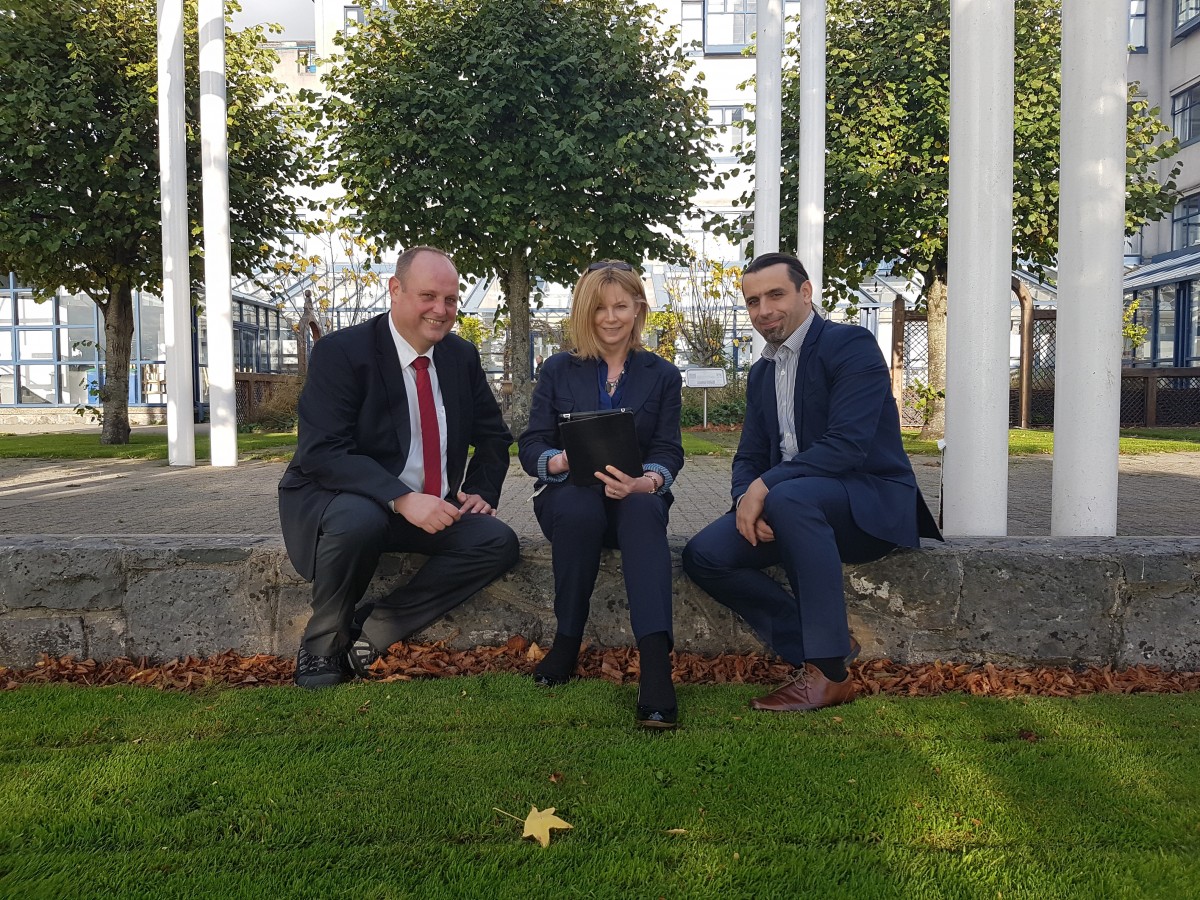
A new research project designed to develop the IT and enterprise architecture required to create smart cities has selected Limerick as a national case study.
Lero, the Irish Software Research Centre, headquartered at the University of Limerick, is investing €500,000 in a Science Foundation Ireland for the research project.
As part of the case study, researchers from Lero at Dublin City University together with Limerick City & County Council will develop a new digital service (Insight Limerick) which offers citizens a portal for information sharing, open data and data visualisation while analytics will be used to gain insights leading to better services.
The Internet of Things will facilitate data capture from potentially thousands of sensors and devices from water, soil and air quality, traffic, cycling and pedestrian movement, parking event management and other sources. For the people, communities and businesses in Limerick to maximise the benefits derived from these new sources of information the data needs to be connected, shared, analysed and protected in a coherent and consistent way in order for new services to be developed and existing ones improved.
Cllr. Kieran O’Hanlon, Cathaoirleach of Limerick City and County Council said “It’s a coup for Limerick to be selected for this important case study as it can be a valuable stepping stone on our vision to make Limerick a sustainable Smart City, region and community.
“Our goal is to make Limerick an increasingly attractive location for FDI (Foreign Direct Investment) as well as indigenous investment which will boost jobs. At the same time, we want to make Limerick a positive experience for locals and visitors through better transportation solutions, reduced traffic, a cleaner environment and a safer community,” he added.
Dr. Mihai Bilauca, Head of Digital Strategy Limerick City and County Council commented “We aim to build Limerick’s reputation locally, nationally and internationally as a digital ecosystem where innovation and digital technologies empower our communities and create new opportunities for all in the knowledge economy. It is a new lens on the Limerick 2030 vision. This will involve the development of world-class digital services and infrastructure for a Smart Limerick and Smart Community.”
SFI funded Lero Investigator, Dr. Markus Helfert, Director of the Business Informatics Group at Dublin City University outlined: “There is a lot of talk about smart cities globally but one of the big challenges is to develop an IT and Enterprise Architecture which suits the needs of the entire city rather than focused on information silos.
“The IT architectural requirements for a city are fundamentally different and need to take account of a broader range of stakeholders and more complex functional requirements than in an enterprise situation. Working with Limerick we aim to design this framework on top of which exciting digital services can be placed.”
Elaborating on the scope of the research project Dr Helfert added: “The objective is to develop the Limerick Enterprise Architecture. Successful development of a Smart City requires a unified ICT infrastructure to allow sustainable economic growth. The unified ICT platform must be suitable to model, measure, optimise, control and monitor complex interdependent systems of urban life.”
Director of Services with Limerick City and County Council, Josephine Cotter Coughlan said: “The challenges and opportunities in the digital age are enormous. An Enterprise Architecture for Limerick will provide a coherent and holistic approach to ensure these opportunities are realised with the ultimate goal of improving the quality of life of our citizens.
“Limerick City and County Council in collaboration with Lero will work together to successfully harness the ability to transform how we do business in Limerick. With a highly educated workforce and home to many of the world’s leading information age companies, Limerick is ideally positioned to become a leading example of a smart city. We look forward to creating a connected digital ecosystem which accelerates learning, improves safety of citizens, enables services for the young and elderly and overall generates a higher quality of life for all,” she added.